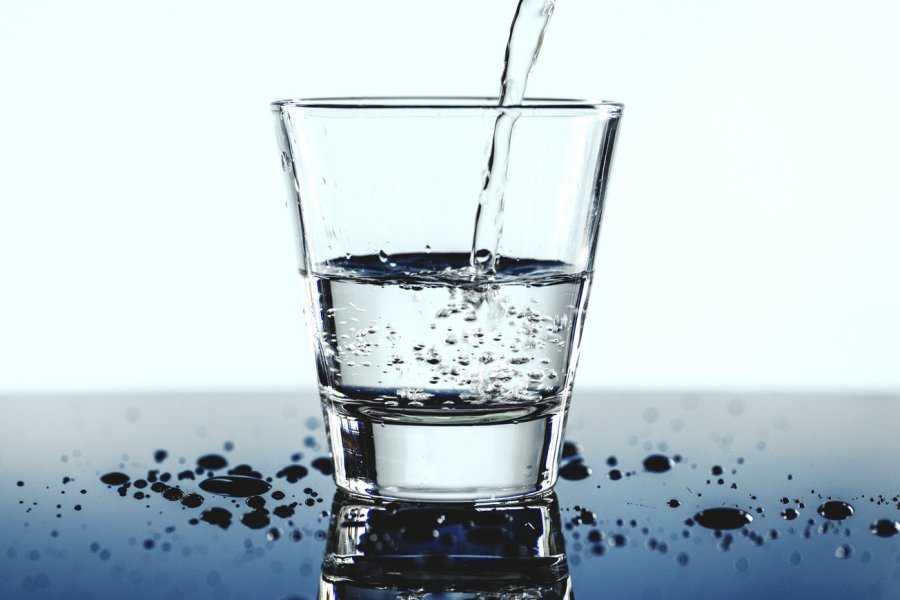How much water should you be drinking?

The human body is roughly 60% water and we are constantly losing water from our bodies via urine and sweat. The common rule is 8 glasses of water per day, which is roughly 2 litres. However, there’s limited science behind this, and it really depends on the individual.
Circumstances that increase water requirements include:
- exercise
- hot and dry weather
- dehydrating environments e.g. air-conditioned offices and airplanes
- breastfeeding
- illnesses e.g. diarrhoea and vomiting
- increasing your fibre intake (which most of us can benefit from) will require more fluids because fibre absorbs water
- diuretics e.g. alcohol, coffee and asparagus cause you to excrete more water so you may need more
- eating high sodium foods causes your body to retain more water, leaving you thirstier
Studies have shown even mild dehydration impacts energy levels and brain function. For example one study found an average fluid loss of just 1.36% after exercise in healthy young women impacted mood and concentration, while increasing the frequency of headaches.
Drinking water can cause mild, temporary increases in metabolism. Drinking it about a half hour before meals can make people automatically eat fewer calories. Increased water intake definitely helps with constipation and decreases the risk of kidney stones. Though the jury is still out on whether it reduces acne and lowers the risk of bladder and colorectal cancer.
The good news is, you don’t need to rely solely on what you drink to satisfy all your fluid needs. Most foods contain water. In fact, many fruits and vegetables e.g. watermelon and spinach, are around 90% water by weight (more reason to get those recommended servings of fruit and vegetables in!)
Other fluids like fruit juices, soft drinks and even caffeinated drinks like coffee and tea contribute to your daily water intake, though not quite as much.
Since you’re not always keeping track of these “sneaky” sources of fluids, the best way to gauge your intake is your body. If you are thirsty, your body’s telling you that you need more water. If your urine is light yellow, you are probably getting enough fluids. If it is dark or smells strongly, you probably need more water.